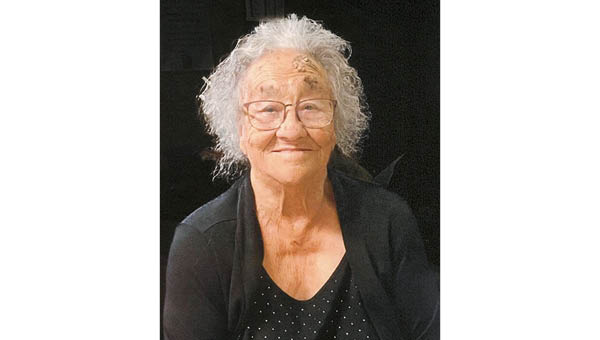Bredesen holds regional roundtable on opioid crisis
Published 6:01 pm Thursday, August 23, 2018

- Star Photo/Curtis Carden Former Tennessee governor and U.S. Senate candidate Phil Bredesen (left) listens intently during Wednesday afternoon's opioid roundtable held inside the Carnegie Hotel in Johnson City.
It doesn’t matter if you’re blue or red, the recent strand of roundtables hosted by former governor Phil Bredesen are geared for those colorblind to the political environment.
Bredesen, Democratic Party candidate for the U.S. Senate position being left by the retiring Bob Corker (R – Tennessee), said the best way to tackle an issue is to speak to those on the frontlines and that was the case Wednesday afternoon during a roundtable discussion on the opioid epidemic held inside the Carnegie Hotel in Johnson City. Joined by roughly 20 representatives from the Tri-Cities — ranging from law enforcement to local activists — Bredesen used the stop as a way to listen to individuals that are dealing with the opioid issue in the Tri-Cities, an area that has been heavily affected by prescription drug abuse and other substances. As of Wednesday, this was Bredesen’s eighth roundtable going over issues topical to citizens.
The U.S. Senate hopeful, who is running against Republican Party candidate Marsha Blackburn in the Nov. 6 election, added that the roundtables aren’t politically driven, but are used as a way to gather information from those dealing with issues directly so that he can know the right avenues to take if he is elected to serve in Congress.
“I’ve always found that the best way to find out about something is not to read a white paper about what some institute thinks about it, but to talk to those on the frontlines,” Bredesen said following Wednesday’s roundtable. The former governor added, “I have no idea what party that the people in these things belong to, or what their political views are. I just want to hear directly what their experiences have been and find out the best way to put together a strategy.”
Throughout the passionate hour-plus discussion, law enforcement and health care specialists were able to share experiences when it comes to dealing with individuals struggling with addiction. Funding for long-term, intensive treatment facilities was one of the items brought up during the talk. Additional funding for other treatment options including medically-assisted treatment and counseling were also brought up.
Friendly debates also occurred during the meeting in regards to the proper way of treatment. Law enforcement from Washington County shared reports of firsthand experiences of individuals that see a “revolving door” when it comes to addicts coming through the court system and that there is some concern about medication-assisted treatment, like methadone, helping someone’s addiction stay intact.
Justin Irick, assistant district attorney who serves the region, including Carter County, shared the story of a case that crossed his desk involving a woman who bought a gun and had the intent of threatening her husband to find out where their methadone was, which resulted in her firing upon her spouse. The man survived, according to Irick, but when cops arrived they discovered a marijuana grow operation that featured 100 plants.
While there are issues of those that abuse the treatment, Dr. Tim Smyth, director of Overmountain Recovery in Gray, shared that there are stories out there like the one Irick mentioned, but other positive stories are still going to this day due to the support of treatment-assisted methods.
Other problems are at play when it comes to tackling addiction issues, including fentanyl. Health care specialists were able to share stories ranging from babies addicted to drugs to the various ways of treatment. Representatives from Bristol Lifestyle Recovery were also able to share their story about treatment options located at their facility on the Tennessee and Virginia border. Rhonda Coffey was also in attendance and shared the story of addiction claiming the life of her son in 2015. Coffey now serves as an advocate against the issues and has played a key role in naloxone opportunities for law enforcement in the Sullivan County area.
Recently, the Tennessee Department of Health announced the number of deaths due to overdoses increased across the state in 2017. Carter County was not left out with 21 being recorded in the data.
And with such a large itinerary to tackle, Bredesen said the roundtable gave him a great place to start when it comes to looking at ways to tackle the issue.
Bredesen did reference a bill that was co-sponsored by Blackburn – which reportedly involves the DEA’s inability to freeze suspicious opioid shipments – should be overturned. According to reports, Blackburn stated the bill should be revisited but the comments were reportedly made 300 days ago with no public update being made since.





